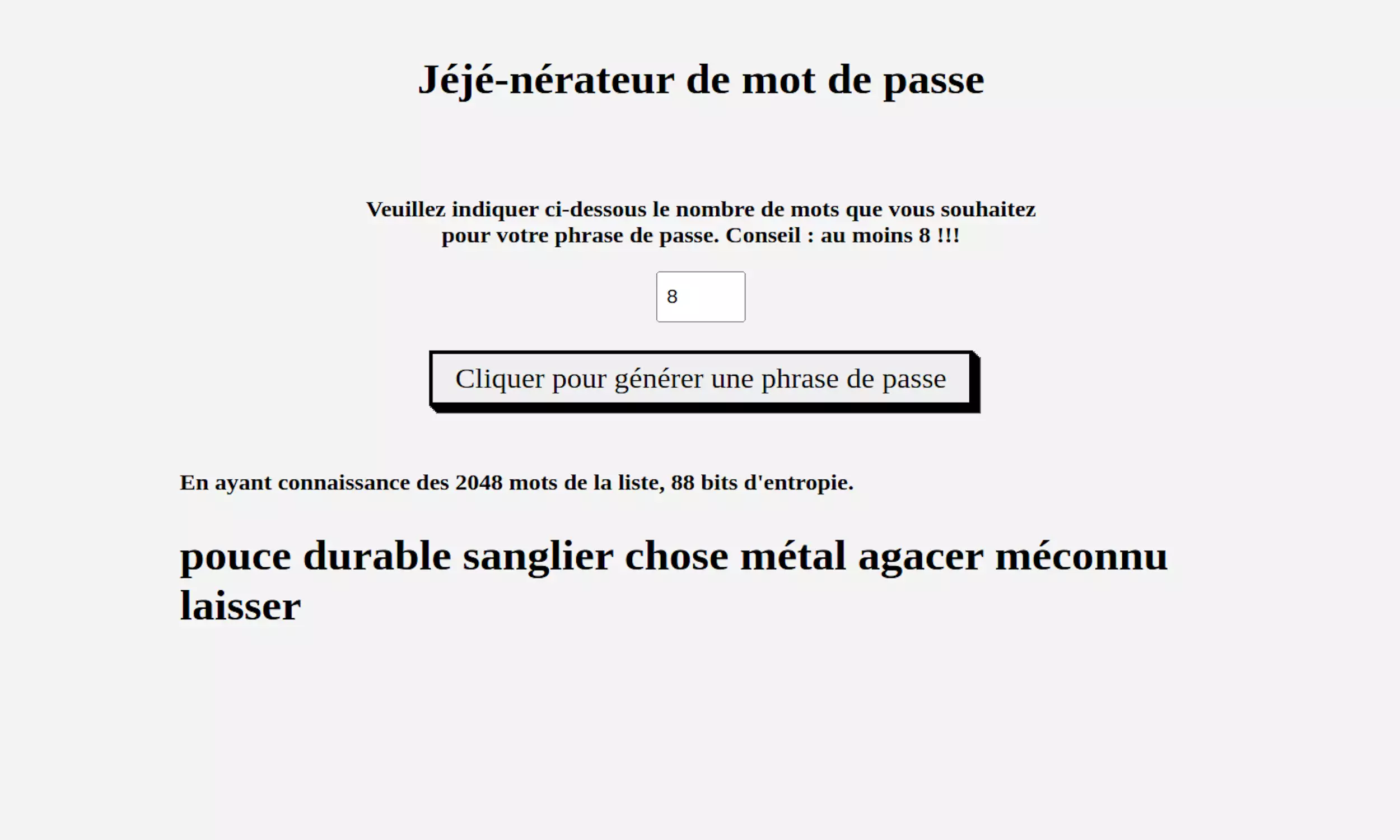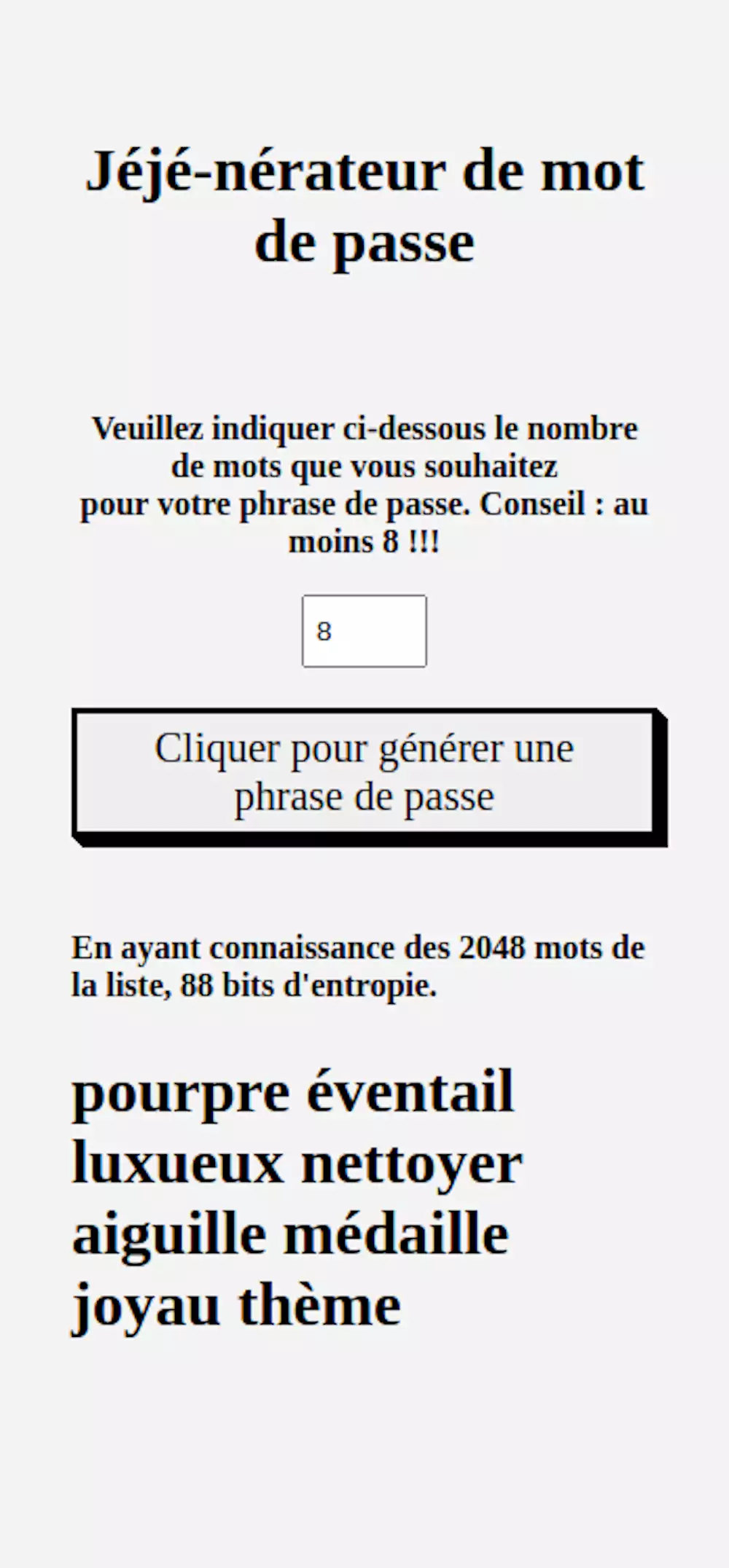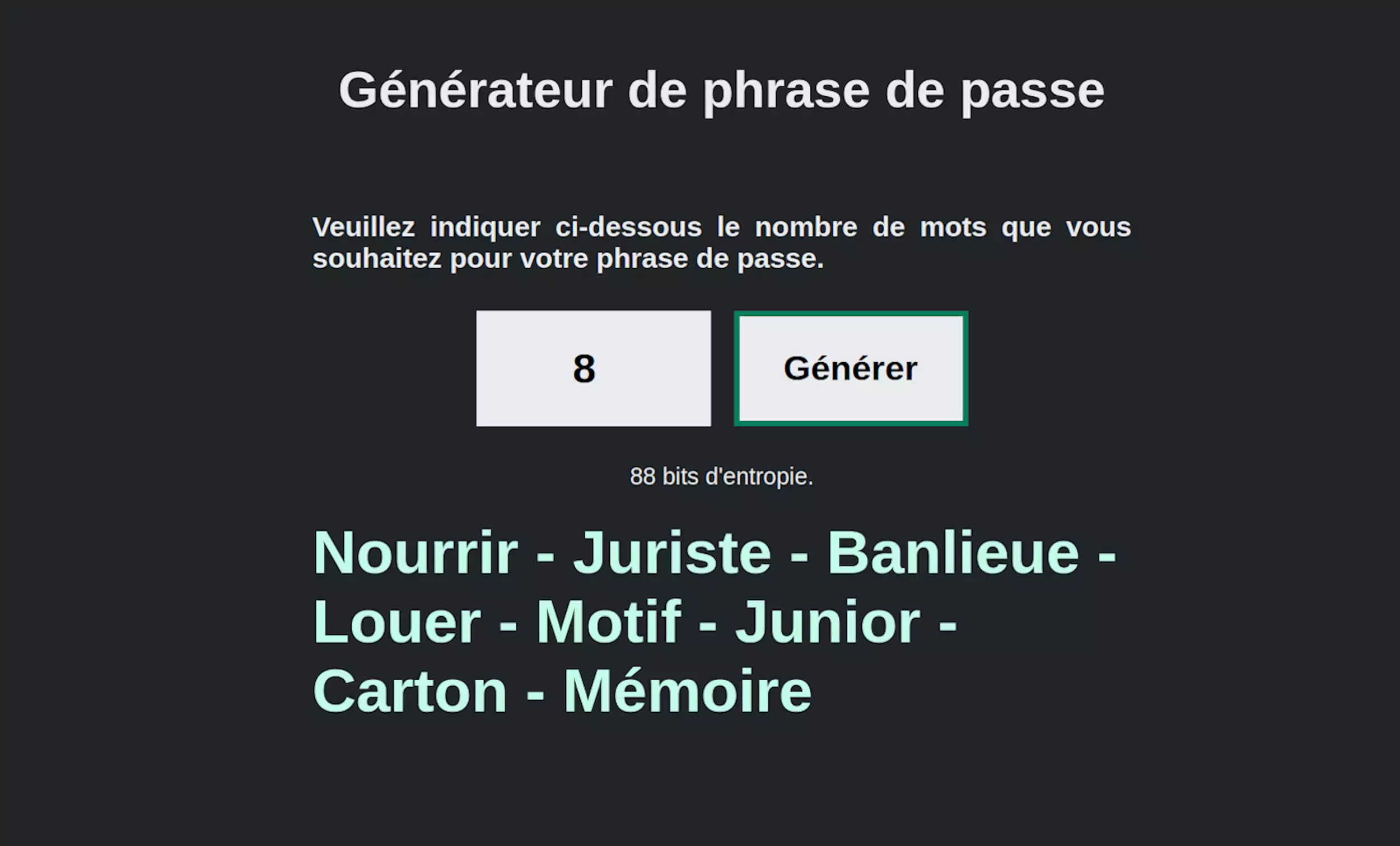Why build this project
Need of passphrase generator
Even if you have a password manager handle passwords for you, you always end up needing a master password / passphrase to secure the password manager. I think an easy to remember random passphrase is the way to go in this case.
Finding "Diceware"
Searching for one online quikly pointed me towards diceware very interesting method. If you are not familiar whith it, here is how it works:
There is a list of 7776 words, you throw 5 dices, the sequence you obtain gives you the number of the word in the list. Repeat the operation as many times as you want words. Each word acts as a symbol and adds 12.92 bits of entropy.
Thinking of improvements
Going through this list, I thought to myself that it was very long and contained a lot of similar words. This represents, in my opinion, two characteristics to be avoided, if one wishes to be able to easily print the list or retain the sentence.
Decision to build my version
After a while, I remembered how a list of 2048 words is used to generate a "seedphrase" for bitcoin wallets and decided to hack my implementation of diceware with this list of words.
Design Improvements
You can see the evolution of the design after I decided to make this project public!




Problems and thought process

My main challenge
The problem for me was to build a passphrase generator that is really secure in terms of how it generates the passphrase. At first, I thought of the Math.random() method. I wanted to generate a random number between 0 and 2047 to select a word in the list. I checked the docs on MDN and found out this warning above!
Reading the docs
So, I checked the newly discovered getRandomValues() MDN page to get acquainted with it. I also read the docs of bitcoin's github repo concerning the list of 2048 words I wanted to use, you can find it HERE.
The solution I came up with
To make it short, you need 11 random bits to generate one word. Each word represents an 11 bits binary number.
00000000000 represents the first word
00000000001 represents the second word
00000000010 represents the third word
And so on… 11111111111 represents the last word.
Implementation details
I use window.crypto.getRandomValues() to generate 11 pseudo-random (cryptographically satisfying) values for each word. These values are between -128 and 127 (int8). I then transform these values into 0 (from -128 to -1) or 1 (from 0 to 127) to represent bits.
This gives me 11-bit binary numbers that I just have to turn into decimal numbers. I then transform these decimal numbers into words by retrieving them according to their index in the list.
What I learned
I learned about typedArray and how the getRandomValues() method works.
I discovered the information theory, the concept of entropy, and why passwords' and passphrases' strength are mesured in bits.
It was the first time that I implemented a relatively complex JavaScript function by joining together multiple very simple helper functions. It was a very good way of breaking down the overall logic.
